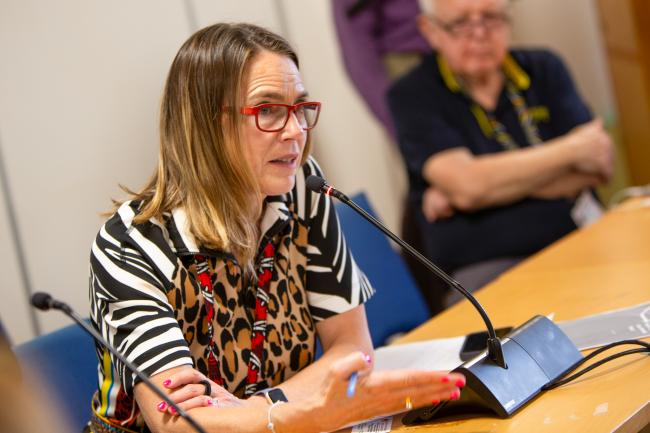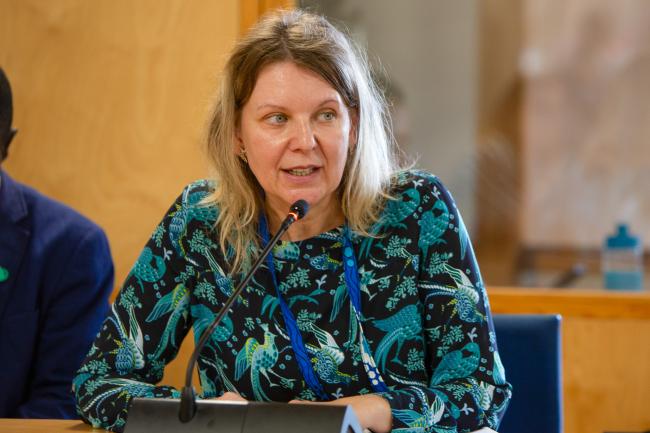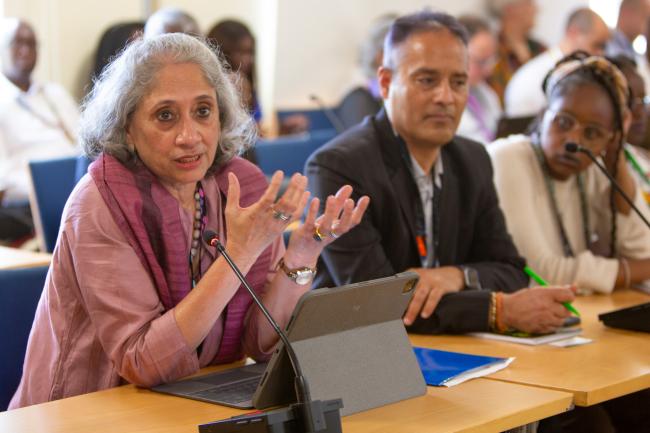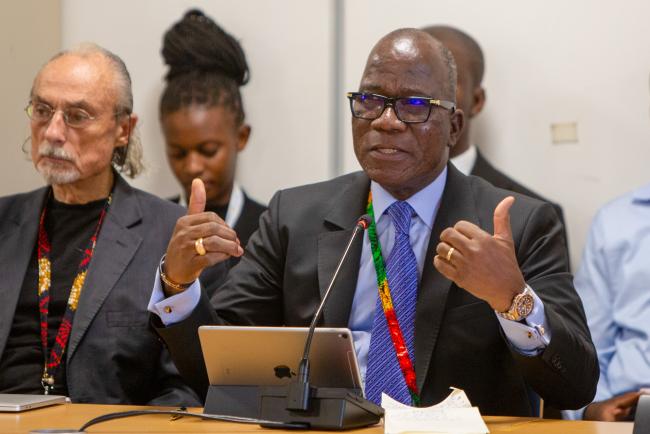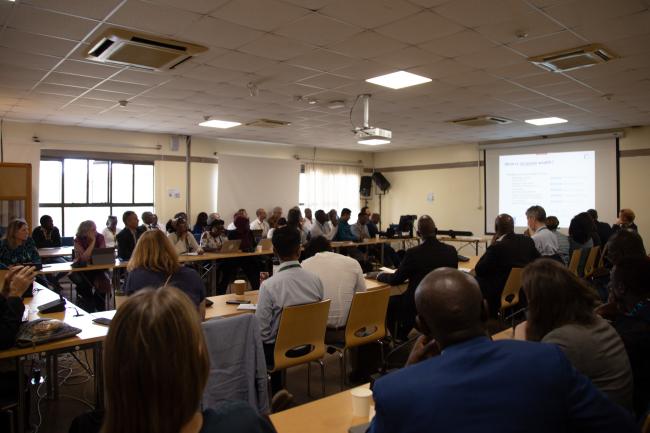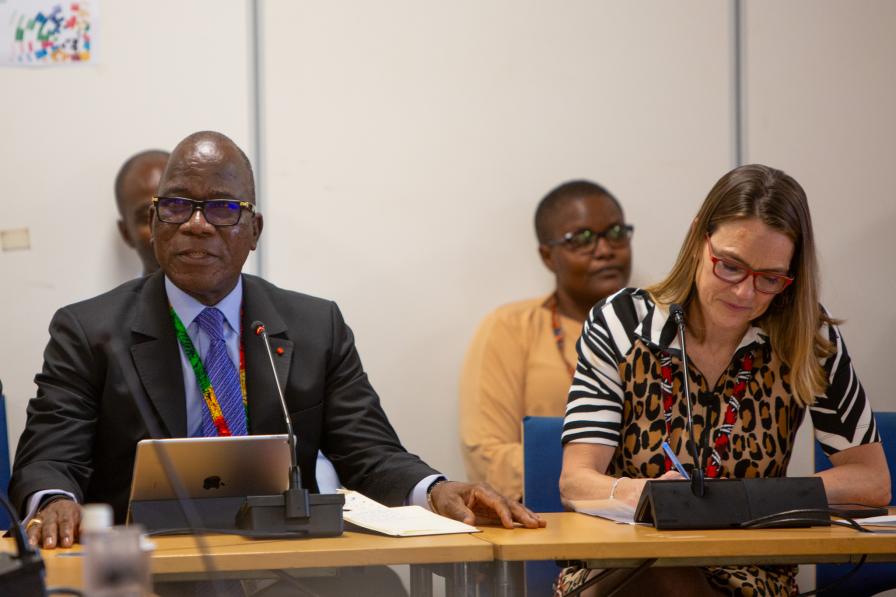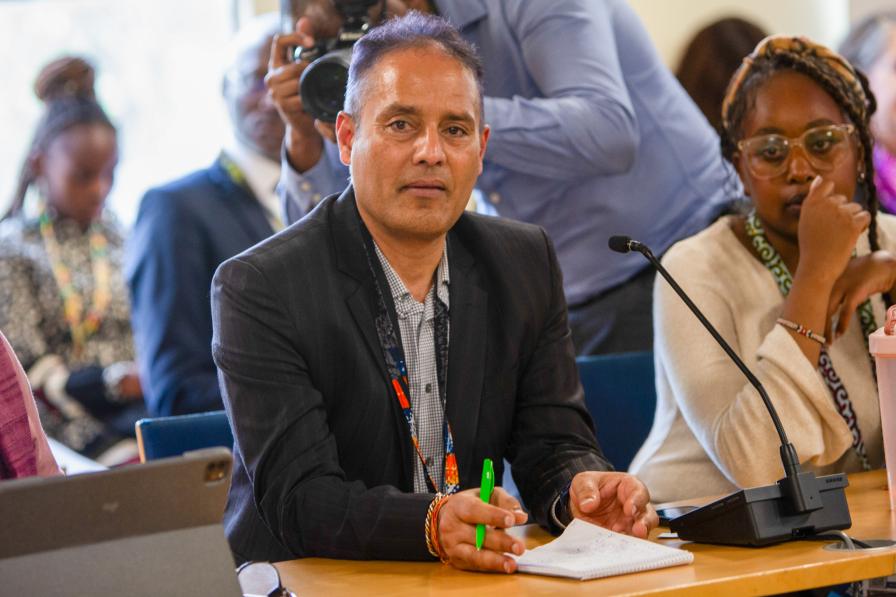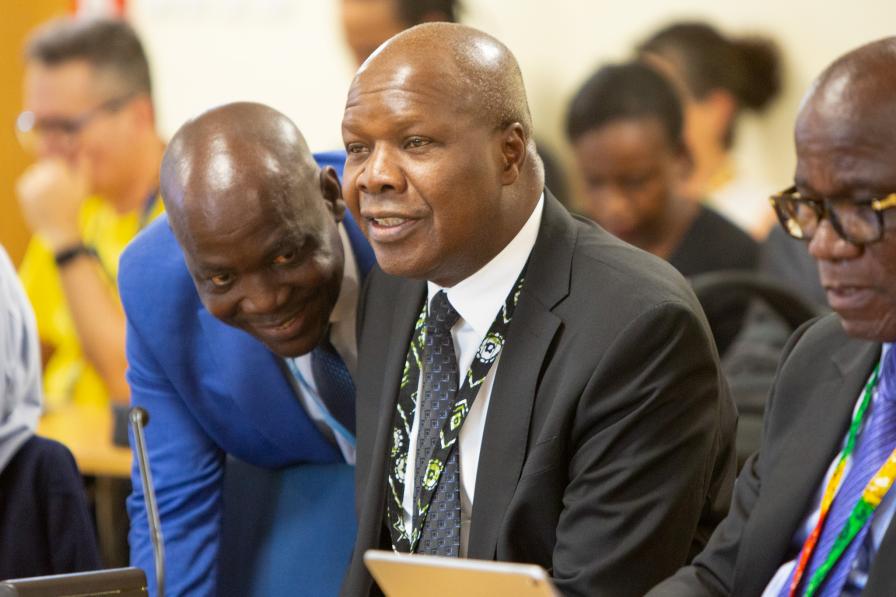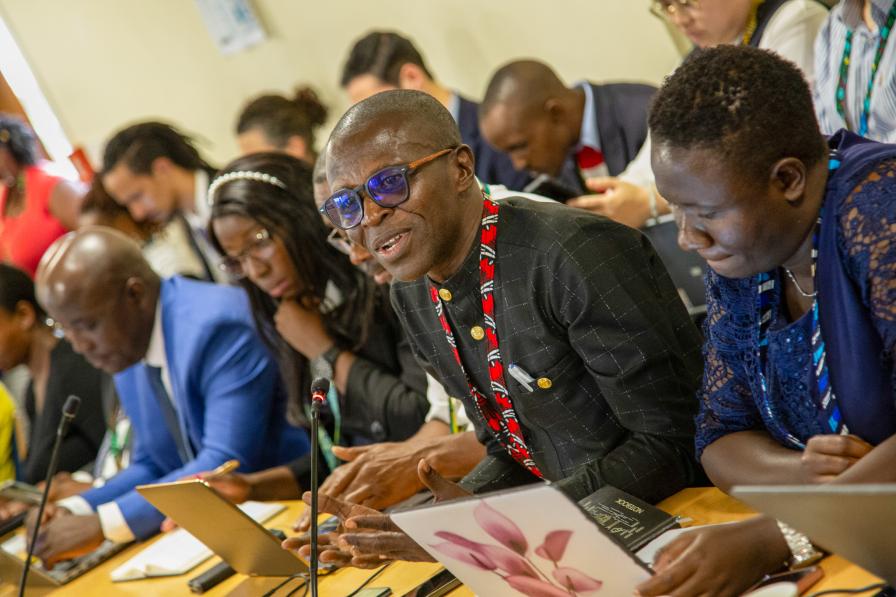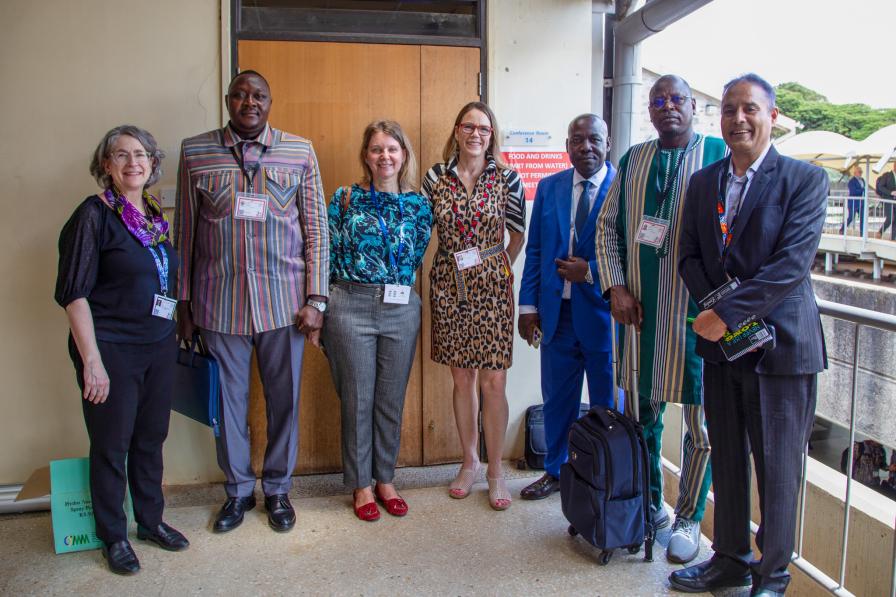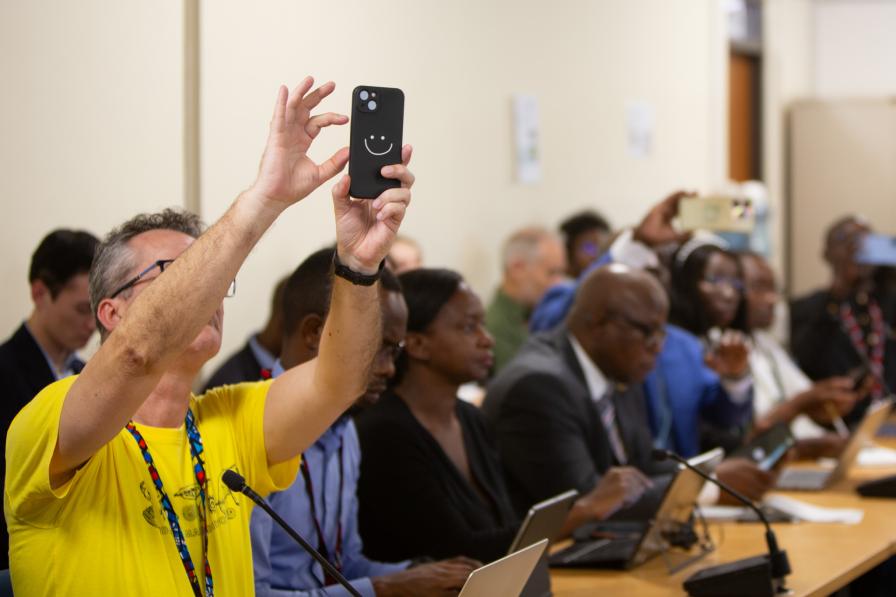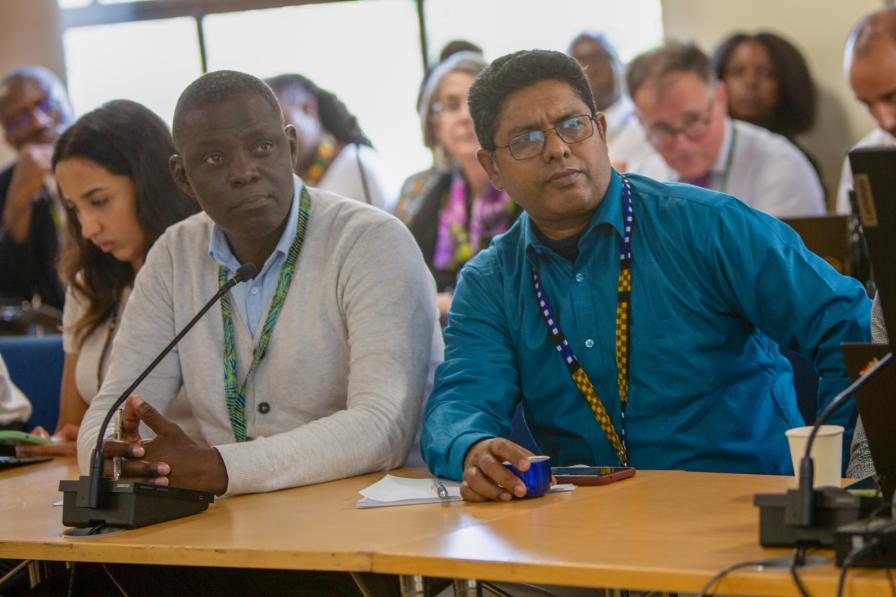About
Speakers discussed lessons learned from developing inclusive and comprehensive wealth measures and their relevance for policymaking with a focus on natural capital and its links to human and produced capitals.
Gross Domestic Product (GDP) fails to support decision makers with the information they need to take policies focused on long-term sustainability. Participants attending the sixth meeting of the UN Environment Assembly (UNEA-6) learned about complementary measures to GDP that seek to address GDP’s shortcomings and measure what truly matters for sustainability and prosperity. Speakers at this side event shared lessons learned from developing inclusive and comprehensive wealth measures and their relevance for policymaking with a focus on natural capital and its links to human and produced capitals.
Erin Tansey, Director, International Development Research Center (IDRC), welcomed participants and highlighted the growing realization that measuring progress and sustainability through GDP is inadequate. She emphasized the need to measure environmental degradation, investments in human capital and future generations, and inequality, and noted calls to complement GDP measures with inclusive wealth measures. She called attention to several activities and agreements that have focused attention on the need for complementary measures to GDP, including:
- SDG target 17.19, which calls for alternative measures of sustainable development;
- the recognition by G7 leaders in 2018 that GDP is insufficient;
- the Dasgupta Review on the economics of biodiversity; and
- the UN Environment Programme’s (UNEP) Inclusive Wealth report.
Livia Bizikova, International Institute for Sustainable Development (IISD), introduced lessons learned from a multi-year project that sought to support three countries to move beyond GDP. Through this project, which is funded by IDRC, IISD has partnered with universities in Ethiopia, Trinidad and Tobago, and Indonesia to demonstrate ways in which wealth can be measured using estimations from each country over a 20-year period.
Bizikova noted that inclusive wealth comprises five types of capital: produced, natural, human, financial, and social. The project found, inter alia, that produced capital grew in all countries, especially in Indonesia. Human capital was found to be growing in all three countries and to be the most important asset in these countries. Natural capital was found to be in decline. Bizikova noted that the research provides data to help countries begin connecting their investments across the different capitals.
Ligia Noronha, UN Assistant Secretary-General, and Head of the UNEP New York Office, called attention to UNEP’s work on inclusive wealth. She noted that the related concept of Beyond GDP was included in the UN Secretary-General’s “Our Common Agenda” and will be considered during the Summit of the Future in September. Noronha emphasized the value of inclusive wealth for incorporating intergenerational concerns into policy making and to evaluate how resources are used for the benefit of people. She also challenged researchers to capture circularity in this new index.
Jacques Assahoré Konan, Minister of the Environment, Sustainable Development and Ecological Transition, Côte d'Ivoire, highlighted that development policies and strategies must include climate change considerations and environmental wellbeing. He recalled that those responsible for measuring and relying on GDP are often part of the Ministry of Finance, and these officials are often not involved in climate change discussions. Minister Konan suggested that, if you can convince the minister of finance to take comprehensive wealth measures into account, it may be possible to get them on board with addressing climate change challenges.
During the discussion, a participant noted GDP may soon peak and asked if government officials are preparing for potential loss of GDP. One participant noted that governments do innovate with how they account for important values, pointing to the creation of “ministries of peace” rather than ministries of defense and “ministries of happiness.”
A speaker said the discussion was the first time she had heard GDP is not an adequate measure and emphasized the need to support developing countries to rethink their reliance on GDP. A government representative suggested that all sectors should be mainstreamed to understand this issue. Another asked if the objective should be to move beyond GDP or to develop a better GDP measurement.
Noronha pointed out several events and issue areas where complementary measures for GDP are being considered, including:
- negotiations on the outcome from the Summit of the Future – the Pact for the Future – includes a section that seeks to capture the values of people, planet and the future;
- small island developing states (SIDS) are using multi-vulnerability measures to make the case for access to concessional finance;
- the UN-adopted System of Environmental-Economic Accounting (SEEA) offers a framework to provide a comprehensive and multipurpose view of the interrelationships between the economy and the environment; and
- the UN is undertaking an initiative to support producer countries of energy transition minerals to balance and harness the process of extracting these minerals.
Additional comments included suggestions to develop tools for business in assessing the weight of each capital and its impact on financial assets, and to evaluate the comprehensive wealth of European countries when they were developing. A speaker also inquired whether inclusive wealth captures inequity or inequality. The need to differentiate comprehensive wealth measures according to gender and regionality were highlighted, with a number of speakers focusing on the need to evaluate the care economy.
For more information please contact Livia Bizikova and Bhim Adhikari.
To receive free coverage of global environmental events delivered to your inbox, subscribe to the ENB Update newsletter.
All ENB photos are free to use with attribution. For this UNEA-6 side event, please use: Photo by IISD/ENB | Ángeles Estrada


